IP-telephony - a modern technology of voice data transmission via the Internet. Previously, there were two separate systems: telephony and the Internet, which worked on various cable systems. If to say simply, different devices and different cables were used for the work with the Internet and conversations.
How does the IP-telephony work?
In general, IP-telephony system is based on a standard Internet packet system: that is, the voice is converted into files that are grouped into packets and sent to the address. Upon reaching the destination, they are decoded back. Packetization of audio files, their transmission and decryption are possible thanks to the existence of a particular network protocol - IP, whence the name of IP-telephony came from. File Transfer Protocol - a kind of language, a code, on which communication on the Internet occurs. Different in type files are transferred and supported by different protocols.
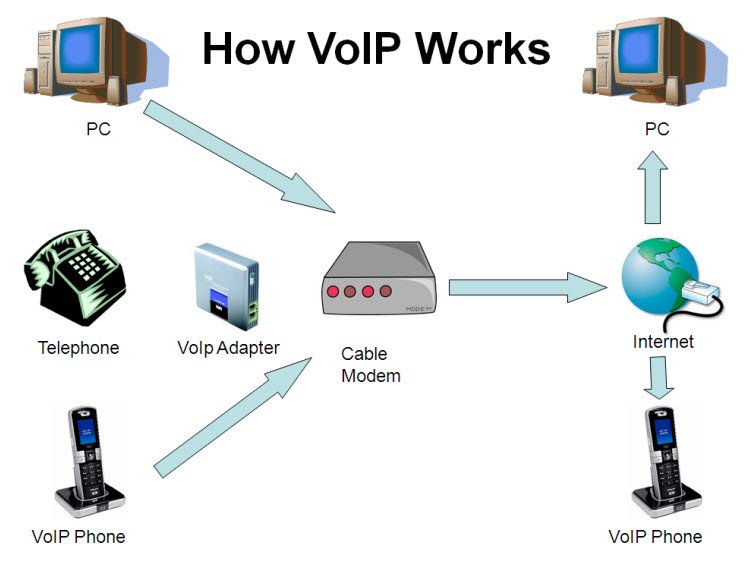
What is the difference between conventional telephony and IP?
When you talk on the phone, you pick up the phone and dial a number with one purpose - to talk. And you talk with one interlocutor via a dedicated and connected phone line. When you are talking on the Internet, you simply send the packets with certain information to the other person that decipher to a destination computer. It is interesting that each packet reaches this person in its own way, then they are grouped by numbers and decoded.
The scheme of an IP-telephony is as follows: server receives the telephone signal, transforms it and sends it to another phone server, where the signal is converted back. Telephone servers can contact any phone and any computer in the world. It is important that all operations: encryption, transmission and decryption occur almost simultaneously, which provides a full-duplex conversation. In order to ensure the universality of the work of telephone servers - worldwide international standard in the field of video conferencing technology for IP-telephony - ITU-T H.323, which regulates the packet-switched networks was adopted in 1996.
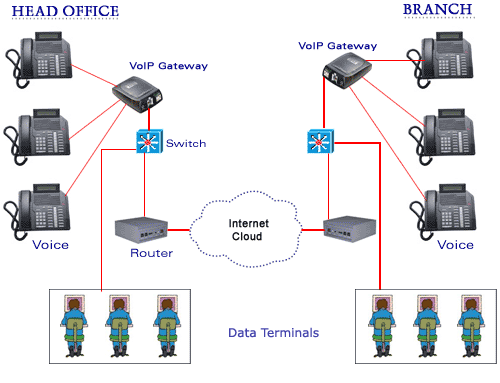
The fourth edition of the standard, approved in 2001 works now. Under this standard, the network should comprise three interconnected devices: a gateway, gatekeeper, and the administration manager. The IP-telephony network consists of telephone network and gateways which are controlled by gatekeepers. If it is necessary, the administration manager is used for remote control and configuration. All this equipment is engaged in coding, transmission, and decoding of audio signals.
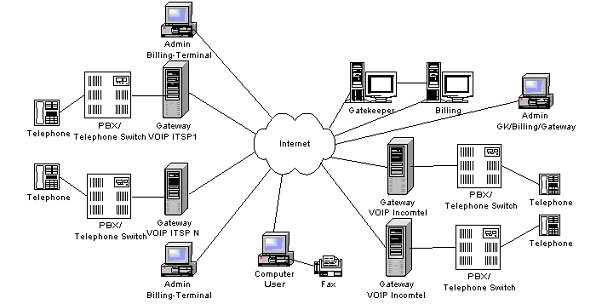
Gateway – it is what connects the Internet and the telephone network, it should call and connect with subscriber of PBX / PSTN (PBX - is a Private Branch eXchange and PSTN - is a Public Switched Telephone Network), compress, split into packets and decrypt the voice, as well as establish connections with remote gateways.
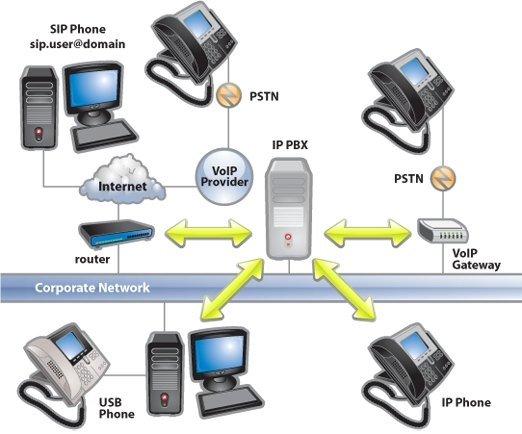
Gatekeeper - the unit is only connected to the OP-telephony network and provide all the basic operations of the network. Dispatchers perform subscriber authorization and authentication, distribute packets between the gateways and provide a commercial accounting of calls.
So, the next is administration manager. This is an optional element of the system, which is required only for remote configuration and network administration. It is an interface for remote configuration and operation of gateways controllers of IP-telephony network.
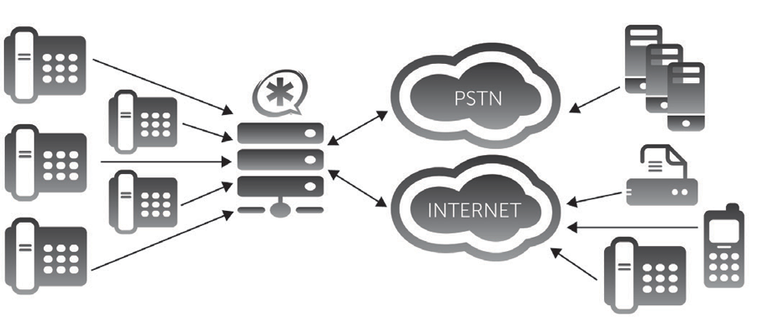
Modern connection to the telephone network server must meet two conditions: standardness (to comply with international protocols) and scalability (ease of the use by large and small companies).
All modern solutions of IP-telephony must support full-duplex conversation when two people can talk at the same time.
Now we will talk about the types of voice communication via IP-telephony.
The first way - the phone-phone, which requires the presence of certain equipment: gateways associated with a common network and the IP-network that both subscribers have. Voice traffic is transmitted over IP-based networks, respectively, to make a call, you must first call the service provider, enter the code and the local phone number and talk as usual. In this case, communication is very convenient and has got high-quality; all work is done by gateways.
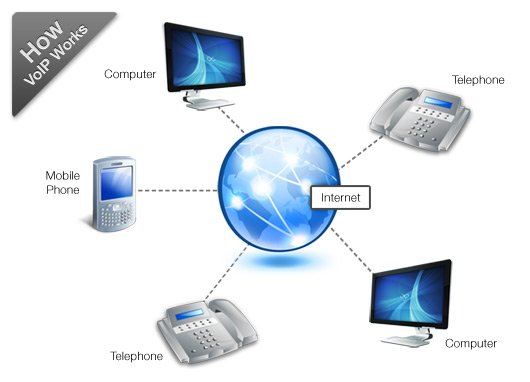
The next way – computer-phone - it is the most relevant and frequently used scheme of calling via IP-telephony. Most often it is implemented for corporate users: a computer signal is an input to the gateway that sends packets already on the local network. The end-user is only required to enter his code in the tone mode. It is the most economical way of communication.
Another interesting way of communication - web-phone. It allows you to dial the phone number and make a call by simply clicking on a link on a web page. This service is also known as web call or Surf & Call. All that is needed - is to download and install the necessary software, the second phone line or the interruption of the network is not required. Most often, this service is used in e-commerce to communicate with the end user.
Technology does not stand still. Every day brings us new opportunities and a chance to explore the world more deeply. Ip-telephony - an innovative communication, communication of the future of our planet. Such capabilities plus its features - the explicit guarantee of success. Simple and easy setup, usability and user-friendliness, cost minimization and qualitative communications are its key characteristics.
Follow me, to learn more about popular science, math and technologies
With Love,
Kate
